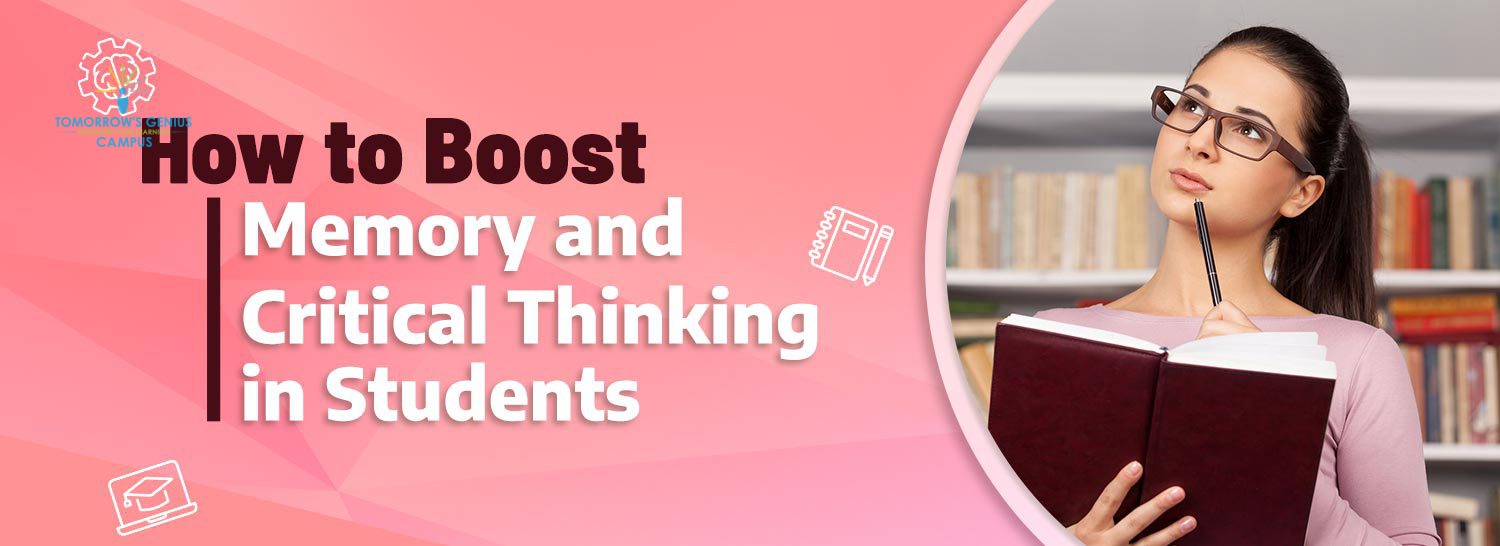How to Boost Memory and Critical Thinking in Students
Today, the mounting pressure of improving academic performance and technological advancements has made children lose interest in hobbies and other enrichment activities. Rarely do we witness parents or teachers encourage the younger generation to follow their passion. The foundation of a child’s education has become goal-oriented, with the focus solely resting on academic excellence. With several tips for building a healthy mind, activities in tandem with academics take the lead. However, extracurricular activities that help children develop real-world skills and their personalities are just as significant.
Your chances of learning more and discovering your strengths, interests, and abilities increase when the theoretical curriculum and extracurricular activities are combined. This is why extracurricular or co-curricular activities, which are an addition to the theoretical curriculum, are important.
Essential skills and values that you can develop through extra-curricular activities are:
- Logical and analytical thinking – – Analyzing the causes of events and circumstance
- Critical thinking – Visualization, coming up with fresh ideas, and creative problem-solving abilities
- Leadership skills – For instance, taking initiative and responsibility, persuading others to work toward goals, defining goals, and taking accountability
- Social skills –Includes cooperation, teamwork, and fostering positive connections with others.
- Emotional skills – Understanding your strengths and shortcomings, regulating your emotions, and having empathy for others
- Communication skill – Includes the power of expression, active listening, public speaking, etc.
Academics and extracurricular activities work together to develop well-rounded people who can learn independently. It is crucial that we give our kids a setting that promotes their complete personality as well as their academic development. This allows children to build the foundation needed for a healthy body and healthy mind.
Diet also plays an important part in a kid’s growth. Best foods for brain included items like coffee, turmeric, blueberries and dark chocolate help boost memory and immunity.
Some extra-curricular activities that students can take up as a part of their daily schedule are:
- Sports like football, cricket, hockey, tennis, etc.
- Creativity-based activities like painting, drawing, carving, pottery, etc.
- Playing musical instruments or singing
- Dancing
- Volunteer work
- Indoor games like Monopoly, chess, Scrabble, etc.
 Extracurricular activities are being incorporated into the academic curriculum in schools worldwide to help pupils develop their abilities. Students who participate in these activities have been found to perform better academically, have closer relationships at school, and are more likely to maintain active healthy lifestyles.
Extracurricular activities are being incorporated into the academic curriculum in schools worldwide to help pupils develop their abilities. Students who participate in these activities have been found to perform better academically, have closer relationships at school, and are more likely to maintain active healthy lifestyles.
By taking part in organised activities like music, dance, performing arts, etc., kids also experience a sense of belonging to the school and have improved self-esteem. Students also become more driven to improve their academic performance as a result of this. The pupils feel more involved, upbeat, and healthy as a result.
Also read:
What is peer pressure and how to handle it
Focus exercises that boost concentration skills















Leave a Comment